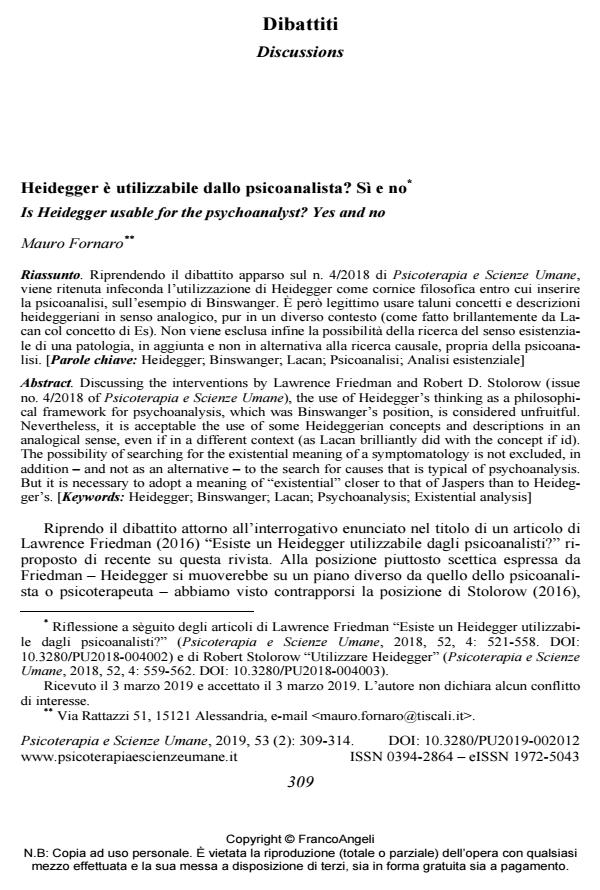Discussions
Journal title PSICOTERAPIA E SCIENZE UMANE
Author/s Mauro Fornaro
Publishing Year 2019 Issue 2019/2
Language Italian Pages 6 P. 309-314 File size 40 KB
DOI 10.3280/PU2019-002012
DOI is like a bar code for intellectual property: to have more infomation
click here
Below, you can see the article first page
If you want to buy this article in PDF format, you can do it, following the instructions to buy download credits

FrancoAngeli is member of Publishers International Linking Association, Inc (PILA), a not-for-profit association which run the CrossRef service enabling links to and from online scholarly content.
Discussing the interventions by Lawrence Friedman and Robert D. Stolorow (issue no. 4/2018 of Psicoterapia e Scienze Umane), the use of Heidegger’s thinking as a philosophical framework for psychoanalysis, which was Binswanger’s position, is considered unfruitful. Nevertheless, it is acceptable the use of some Heideggerian concepts and descriptions in an analogical sense, even if in a different context (as Lacan brilliantly did with the concept if id). The possibility of searching for the existential meaning of a symptomatology is not excluded, in addition - and not as an alternative - to the search for causes that is typical of psychoanalysis. But it is necessary to adopt a meaning of "existential" closer to that of Jaspers than to Heidegger’s.
Keywords: Heidegger; Binswanger; Lacan; Psychoanalysis; Existential analysis
Mauro Fornaro, Dibattiti in "PSICOTERAPIA E SCIENZE UMANE" 2/2019, pp 309-314, DOI: 10.3280/PU2019-002012